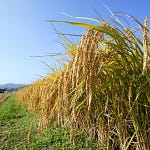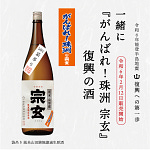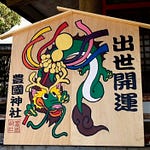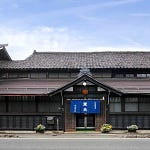Welcome to Issue #68 of SIN.
We've all seen Japan in the news a lot over the past week and a half for all the wrong reasons. Here at SIN we steer well clear of political commentary, but we would be remiss to completely ignore the elephant in the room. And while the recent events have no direct effect on the sake industry, it is fair to say a pall has been cast over the mood in the country of which the likes have not been felt in recent memory.
Unfortunately, this issue of SIN also hits a couple of dour notes with some telling facts and figures about how the industry is faring at the moment. But as always, we look for the upside! And that is, sake quality has never been better, sake has never been more readily available, and sake fans are growing in number everyday.
So onward and upward we go!
And now here's the news...
Bankruptcy Marks The End Of Another Brewery
Ibaraki- Sad news for the industry as Ishioka Shuzō (maker of Hakushika and Tsukuba sake), began its declaration of bankruptcy proceedings on June 22.
Ishioka Shuzō was born out of a merger of four breweries in 1972 and enjoyed moderate success during the jizake boom. However, sales gradually declined as more consumers turned to whiskey and shochu. When the fifth generation kuramoto fell ill, his daughter Takako Hiyamizu returned to the brewery and helped drive a 20 percent spike in sales with aggressive social media promotion of online sales, but it wasn't enough to keep the business alive. A further drop in sales due to COVID-19 proved to be the final nail in the coffin for the embattled brewery. Ishioka Shuzō was forced to close under the weight of debts totaling JPY400 mil (USD3mil).
The land and buildings of Ishioka Shuzō have been sold to Kiuchi Shuzō (maker of Hitachino Nest craft beer and Kikusakari). Kiuchi Shuzō plans to use the facilities to expand its whiskey distilling business.
Source - Asahi
JG: This one was both surprising and painful. I used to love this kura’s sake, and would go out of my way to find it. I knew nothing of their recent hardships, though. I wish the best for the family and former employees.
石岡酒造 , 白鹿 , 筑波 , 木内酒造 菊盛 , 常陸野ネストビール
Survey Reveals The Realities Of Kurabito Life
Japan- Last month sake media website, Sake Street, conducted an anonymous survey of 59 kurabito (brewery workers) from 29 prefectures across the country to examine the employment conditions and work standards within the sake industry with some interesting and startling results.
In regards to working hours, 55.9% of respondents reported working more than 9.5 hour per day during the peak-brewing season. Within that number 25.4% reported working more than 12 hours per day. During this peak season 88.1% of brewery workers reported receiving one day or less off per week. Furthermore, 52.5% of those reported not even being able to take one day off.
A number of workers responded with anecdotes such as working 42 days straight without a holiday, while one reported working 100 consecutive days with only three days off over the New Year.
Compounding the dissatisfaction with long working hours was the remuneration. The lowest average salary for an entry-level kurabito was reported as JPY130K (USD950) per month. The highest, for toji and senior brewers, averaged at JPY650K (USD4750) while the median for 66.1% of kurabito was JPY225K (USD1641) per month.
The survey revealed some kurabito are being denied their overtime payments with underhand tactics such as alterable hand-written timecards instead of hard data electronic records. A number of respondents also reported situations where bonuses were reduced to counter taking paid vacation time.
In regards to workplace safety, a terrifying 90% of respondents answered that they sometimes feel in danger of injury. In addition, more than 60% said that they sometimes feel in danger of death.
Such conditions contributed to the image of some breweries as "black" enterprises. Burakku (black) kigyō is a term used in Japan to describe businesses that take advantage of employees and fail to adhere to the legislative rights and regulations of employees.
A correlation between the overall perception of "blackness" and the size of the brewery was found with smaller breweries generally being perceived as less likely to prioritize employee safety and satisfaction.
Source - Sake Street
JG: While this was another surprise to me, I guess I had never thought about it. I mean, how could there be bad eggs in the sake-brewing industry; right? Wrong, obviously. Let’s hope things get better for them.
Tochigi Leads The Way For Sake Tourism
Tochigi- It's been a long time coming, and although Japan's borders are yet to open to regular tourists, there are signs suggesting we are getting closer.
Listen to this episode with a 7-day free trial
Subscribe to Sake Industry News to listen to this post and get 7 days of free access to the full post archives.













